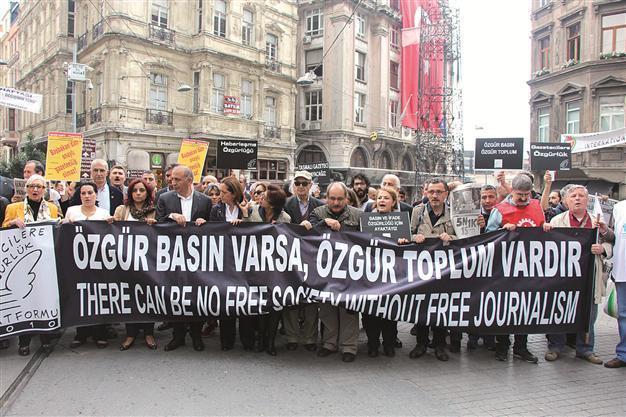Media transparency vital for functioning democracy: Council of Europe
STRASBOURG

DHA photo
A report adopted by the Council of Europe (CoE) on June 24 says media transparency should be promoted, stressing the importance of freedom of expression and media pluralism for a functioning democracy.Member states of the CoE should ensure compliance with transparency standards through regulatory authorities encouraging judicial and legislative bodies on a domestic level to recognize the links between freedom of expression, media plurality and a functioning democracy, says the report, which was prepared with the contribution of Gülsün Bilgehan, who is the CoE’s head of the Committee on Equality and Non-Discrimination and a deputy for Turkey’s Republican People’s Party (CHP).
The report also stresses that media ownership transparency is necessary to enable members of the public to form an opinion on the value of the information, ideas and opinions disseminated by the media.
“The absence or limited nature of media specific or general disclosure provisions in many states means that citizens are unable to establish who owns or controls the media operating in their country. Therefore, further action is needed at the domestic level,” it states.
The report says media outlets are often owned and controlled in a non-transparent manner, either because of a lack of transparency obligations under domestic law in member states or through non-transparent legal constructions of indirect or hidden ownership, which is often linked to political affiliations or the economic or religious interests of the true owner of a media outlet.
Parliaments of CoE member states should review their legislation to ensure adequate ownership transparency of media outlets so that the public has access to specific information about their management and editorial structures, as well as their financing, it suggests.
“Moreover, because of the increased economic pressure and competition through digital media, the pluralism of media outlets is particularly challenging. Media outlets have been taken over by larger media companies or wealthy individuals, whose interests are less focused on independent journalism or profitability, but rather on the possibility to lead the opinion of a section of the public at large. Through media concentration, such opinion-leadership may have become dominant in some regional or national markets,” the report states.
















